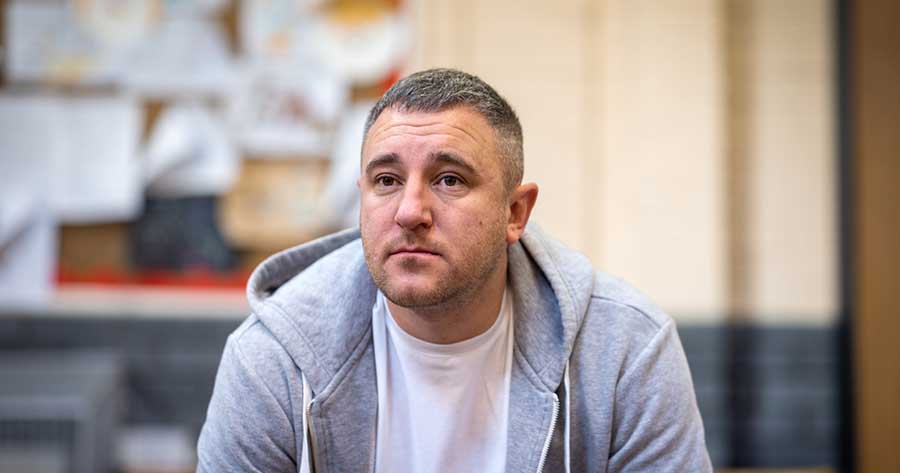The following statement from a local head of nursing encapsulates the view of many in senior nursing positions:
‘All nurses should be researching. It must be seen as integral to nursing practice and not simply as an add on.’
Yet in reality, nursing research has grown very slowly and remains the activity of a minority group. Why is this?
My background and perspective
As a registered nurse who trained 27 years ago within an ‘apprentice training system’ in New Zealand, my training had a practical focus and, unlike nurse training today, completely omitted research. After years of ‘learning on the job’, which included additional training and supervision, I am now pursuing a career as an independent researcher while gaining a further academic research qualification in the form of a supervised MPhil.
By sharing my views, opinions and experiences gained through this path, I hope to encourage fellow nurses wishing to pursue a career in research, and to help them avoid the many pitfalls and prejudices that I, and others, have encountered.
One of my several roles was as nurse/coordinator, where I helped to provide supervision and support for 86 research nurses working in hospital-based research clinics throughout New Zealand and Australia. This provided me with considerable insight into the personal skills and qualities needed by nurses working in research. Although many of them were experiencing research for the first time, a number have since completed the necessary higher education and training to develop their careers as independent nurse researchers.
Health-related research
In the past, health-related research has been conducted by a wide variety of academics including sociologists, psychologists, economists and biologists. In addition, there has been a tradition of practitioner researchers, made up mainly of doctors with the necessary exposure to research methodology gained during their undergraduate education. Doctors, unlike nurses, have been well placed to maintain a clinical workload alongside academic responsibilities, which facilitated a close alignment with clinical problems and stimulated inquiry.
Research traditions, based within a ‘hard science’ paradigm, have seen quantitative research methodology as a more acceptable option, with qualitative research as a ‘soft option’. Nurses with a stronger social science background have been more likely to recognise the value of qualitative research, which is, unfortunately, less likely to be either funded or taken seriously.
Increasingly, according to Britten et al (1995), it is accepted that qualitative methods have an important contribution to make in research, whether applied independently or combined with quantitative methods.
Nurses have the relevant skill mix
More often than not, ideas that provide the ‘seeds’ for important research initiatives come directly from observing patients within the clinical setting.
Nurses are ideally placed to observe these nuances and patterns relating to health care, having been trained to observe carefully and report with precision any changes in patients under their care.
Research is becoming more ‘interdisciplinary’ and nurses need to adapt quickly to this change because nursing already has a well-established culture of interprofessional working. Research often requires, and is enhanced by, a mix of skills not readily available in one profession. Nurses, unlike many other potential researchers, already possess many relevant skills and personal attributes (Table 1).
Disappointingly, however, as Watkinson (1997) points out, many nurses and other health professionals see the primary role of the nurse as a hands-on carer and do not consider nursing research a priority.
Barriers to nurses engaging in a research career
Embarking on a research career can be viewed as a risky business. This is because such a change is likely to jeopardise a current clinical post and expose the nurse researcher to short-term contracts as a direct result of limited short-term funding. Those involved are not generally able to maintain a clinical workload and can become detached from their profession.
Historically, nurses have had little opportunity to gain experience in research while retaining their clinical commitments at their current level of seniority. This impression is borne out by the fact that most nursing research expertise is located within the university sector.
A distinctive research training and career path within the nursing discipline is currently at an embryonic stage of development. Increasing numbers of nurses are completing first degrees, and many are working towards masters’ qualifications.
However, bridging the gap into a research career is problematic without a distinctive discipline-based research training programme (Proctor, 1997). Nurses with an interest in pursuing research careers have encountered three main problems:
- Little opportunity to gain experience in research while retaining clinical commitments
- A limited number of first-class nurse researchers to inspire and lead others
- Difficulty in gaining access to funding as grants are often awarded to researchers with a proven academic and clinical track record, and until relatively recently have been channelled towards ‘hard science’. The Royal College of Nursing Research Society helps nurses by informing them of possible funding sources through a regular newsletter.
One attempt to solve this problem has been the development of a ‘pilot’ initiative between one local NHS trust and the local university. This initiative was to second nurses on a part-time basis for a 12-month period into a research setting for research training, experience and mentoring. These individuals have since returned to their full-time clinical posts and are all now proceeding with a part-time taught MSc course. Unfortunately, further funds to continue this worthwhile programme are not available.
In the medium term, innovative trusts who recognise the importance of developing their own ‘in-house’ research expertise will need to establish a long-term, well-resourced strategy that is capable of supporting continued nursing research. The essential ingredients are:
- The ability to provide longer-term development funding
- Identification and targeting of interested experienced nurses and a guarantee that nurses’ clinical posts will be secure while they undertake research training
- Consideration to developing joint posts or establishing close academic links with experienced researchers throughout this process and beyond.
These suggestions are consistent with the recommendations made by Mant (1997) in a report on research in primary and community care relevant to nurses working within primary health care.
How do you get started?
There are three main routes into nursing research:
1. The long and informal route
This usually means working in a nursing capacity on a research project as a ‘data collector’, and learning research skills by ‘apprenticeship’. Surprisingly, many see this as the most common route into nursing research.
Unfortunately, nurses following this route are often dismissed by more senior nurses in academic and service settings, who see them simply as research assistants or data collectors, and do not give them the direction needed to guide them into the role of nurse researcher. Some consider this attitude to be partially responsible for the slow development of nursing research. Identifying possible mentors is crucial if this group is going to continue to move forward.
2. Networking with academics
Networking with university-based academics allows the nurse clinician to gain relevant first-hand research experience on a major project. Such academics may welcome clinically based health professionals, recognising that they are well placed to provide a necessary perspective from the ‘coal face’.
Depending on the qualities of the individual, this could provide an insightful experience and inspire them to seek further training that would enable them to conduct their own research at a later point.
3. Formal research training
An experienced nurse clinician can embark on formal research training by enrolling for a taught masters, or beyond that a supervised research degree such as an MPhil or PhD. This enables the practitioner to develop his/her own line of questioning. It is usually possible for a full-time NHS clinical nurse to enrol on a taught MSc research degree if permission can be obtained to attend the specified compulsory sessions.
Undertaking a research degree part time is likely to take 1–2 days a week over a 3–4 year period. Nurses seeking qualifications of this sort need to be aware of the requirements and training necessary to become an effective researcher. This requires significant commitment as well as appropriate support and supervision.
Conclusion
If nurses are to succeed at developing a solid research base – which, according to Eagle (1990), is a valuable contribution to the provision of quality nursing care – they must endeavour to promote the development of research careers within the profession while simultaneously providing the critical infrastructural support alluded to earlier.
Until the critical mass of nurse researchers required to inspire and lead others is achieved, it may be prudent in the first instance for the profession to target the research assistants/data collectors, who already have experience and an interest in research. These nurses are in a strong position to develop further with the appropriate support. They could be encouraged to undertake additional training with a view to concentrating on research allied to nursing. In my experience, nurses in these roles are mature, reliable and have considerable experience in a range of skills that are highly valued within the field of research.
If, as is often quoted, ‘research is 5% inspiration and 95% perspiration’, then nurses are well able to take part. By engaging in all areas of research, and making the links into practice, nurses will be able to address important issues for patients.




How a new model of care has improved outcomes for people with diabetes.
2 Dec 2025